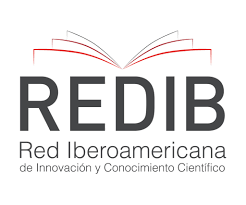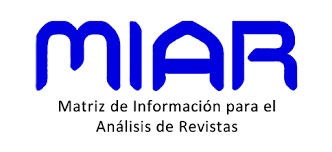Suffering Conquered by Love: Rediscovering the Meaning of Suffering
DOI:
https://doi.org/10.51743/cpe.403Keywords:
biomedical research, care, eugenics, euthanasia, palliative, sufferingAbstract
This reflection aims to offer options to take into account in the face of the different solutions that modernized society presents to end human suffering and pain: eugenics, euthanasia, in short, death as the only possibility. From personalist bioethics, with its Christian perspective, it is intended to provide elements that generate a debate about the value and creative force of suffering, where we can rediscover the meaning of suffering that is overcome by Love.
Downloads
References
Borghi, L. (2018). Breve Historia de la Medicina. Rialp.
Boyd, J. (2 de mayo de 2009). Florence Nightingale and Elizabeth Blackwell. The Lancet, 373 (9674), pp. 1516-1517.
DOI: https://doi.org/10.1016/S0140-6736(09)60845-X DOI: https://doi.org/10.1016/S0140-6736(09)60845-X
Comissão Nacional da Pastoral Familiar - CNPF. (2013). Keys to bioethics “Claves de la bioética” (1ª ed.). Fondation Jeròme Lejeune.
Conferencia Episcopal Española. (2011). Sagrada Biblia. BAC.
Congregación para la Doctrina de la Fe. (2008). Instrucción Dignitas Personae. Sobre algunas cuestiones de bioética. www.vatican.va/roman_curia/congregations/cfaith/documents/rc_con_cfaith_doc_20081208_dignitas-personae_sp.html
Congregación para la Doctrina de la Fe. (14 de julio de 2020). Carta Samaritanus Bonus. Sobre el cuidado de las personas en las fases críticas y terminales de la vida. https://press.vatican.va/content/salastampa/es/bollettino/pubblico/2020/09/22/carta.html
Escrivá de Balaguer, J. (1973). Es Cristo que pasa. Rialp.
Germán Zurriaráin, R. (3 de diciembre de 2019). Cuidados paliativos: solución ética acorde con la dignidad humana al final de la vida. Persona y Bioética, 23 (2), pp. 189-193. DOI: https://doi.org/10.5294/PEBI.2019.23.2.2 DOI: https://doi.org/10.5294/pebi.2019.23.2.2
Iglesia Católica. (1997). Catecismo de la Iglesia Católica. Nueva edición conforme al texto latino oficial de 1997. Asociación de Editores del Catecismo - Libreria Editrice Vaticana.
Juan Pablo II. (24 de marzo de 1979). Discurso del Santo Padre Juan Pablo II a la peregrinación comunitaria y oficial de la Archidiócesis de Nápoles.
Juan Pablo II. (1984). Salvifici doloris. https://www.vatican.va/content/john-paul-ii/es/apost_letters/1984/documents/hf_jp-ii_apl_11021984_salvifici-doloris.html
Juan Pablo II. (1995). Evangelium Vitae.
Lewis, C. S. (1994a). Una pena en observación. Anagrama.
Lewis, C. S. (1994b). El problema del dolor. Rialp.
Lucero, I. (6 de julio de 2010). El dolor y el sufrimiento humano. En J. J. García, Enciclopedia de Bioética. Universidad Católica de Cuyo. https://enciclopediadebioetica.com/mod/page/view.php?id=3326#:~:text=El
Marino, L., & Mountain, M. (2015). Denial of Death and the Relationship between Humans and Other Animals. (International Society for Anthrozoology, Ed.) Anthrozoös, 28(1), pp. 5-21. DOI: https://doi.org/10.2752/089279315X14129350721777 DOI: https://doi.org/10.2752/089279315X14129350721777
Monge, M. (1984). Sentido cristiano del sufrimiento humano. Revista de Medicina de la Universidad de Navarra, XXVIII (1), pp. 61-65. DOI: https://doi.org/10.15581/021.28.6271 DOI: https://doi.org/10.15581/021.28.6271
Moreno Ortega, R. (2013). Aborto. En R. Moreno Ortega, Voces de Bioética y Excelencia (pp. 12-18). San Pablo.
Moreno Ortega, R. (2013). Diagnóstico prenatal. En R. Moreno Ortega, Voces de Bioética y Excelencia (pp. 169-172). San Pablo.
Moreno Ortega, R. (2013). Eutanasia. En R. Moreno Ortega, Voces de Bioética y Excelencia (pp. 281-286). San Pablo.
Moreno Ortega, R. (2013). Genética. En R. Moreno Ortega, Voces de Bioética y Excelencia (pp. 315-318). San Pablo.
Navas, A. (14 de abril de 2008). Tomato Lichy y Paula Garfield quieren otro hijo sordo. Diario de Navarra.
Poisson, J. F. (2009). Bioética ¿El hombre contra el hombre? Rialp.
Polaino, A. (1993). Más allá del sufrimiento. El dolor y la aceptación de sí mismo. Atlántida.
Sfetcu, N. (12 de febrero de 2019). The new (liberal) eugenics. (MultiMediaPublishing, Ed.)
DOI: https://doi.org/10.13140/RG.2.2.28777.95849
Sociedad Española de Cuidados Paliativos. (2014). Guía de cuidados paliativos.
https://cmvinalo.webs.ull.es/docencia/Posgrado/8-CANCER%20Y%20CUIDADOS-PALIATIVOS/guiacp.pdf
Spaemann, R. (2007). ¿matar o dejar morir? Cuadernos de Bioética, 62, 107-116. http://aebioetica.org/revistas/2007/18/1/62/107.pdf
Tracy, D. (junio de 2016). Las numerosas formas del sufrimiento. Revista Internacional de Teología Concilium, 366, pp. 25-34.
Downloads
Published
How to Cite
Issue
Section
License
The author reserves the rights (copyright) of the published works, and the journal encourages and allows their reuse, from the preprint. The works are published in the electronic edition of the journal under a license "Creative Commons Attribution / Attribution-NonCommercial 4.0 International Public License - CC BY-NC 4.0", and can be copied, used, disseminated, transmitted and publicly exhibited.
The author / s partially transfer the property rights (copyright) of this work for the printed and online editions, provided that:
- The authorship and original source of its publication (magazine, publisher and URL of the work) is cited.
- Are not used for commercial purposes.
- The existence and specifications of this user license are mentioned.
It also declares to have respected the ethical principles of research and to be free from any conflict of interest.
"C.P.E." encourages the authors and the scientific community to the maximum promotion and dissemination of the works in their final version through:
1) Your list of contacts (emails) and social networks (Facebook, Twitter, LinkedIn ...).
2) Institutional repository of your University and public repositories (Mendeley, Cosis ...).
3) Scientific social networks (ResearchGate, Academia.edu, Kudos ...).
4) Personal or institutional website, blog, etc.
5) Google Scholar, ORCID, ResearchID, ScopusID, Dimensions, PlumX ...
6) Printed copies purchased directly and sent to specialists for reading and subsequent citation if appropriate.




















1.png)
1.png)

1.png)





.png)
.png)

.png)
1.png)
1.png)
